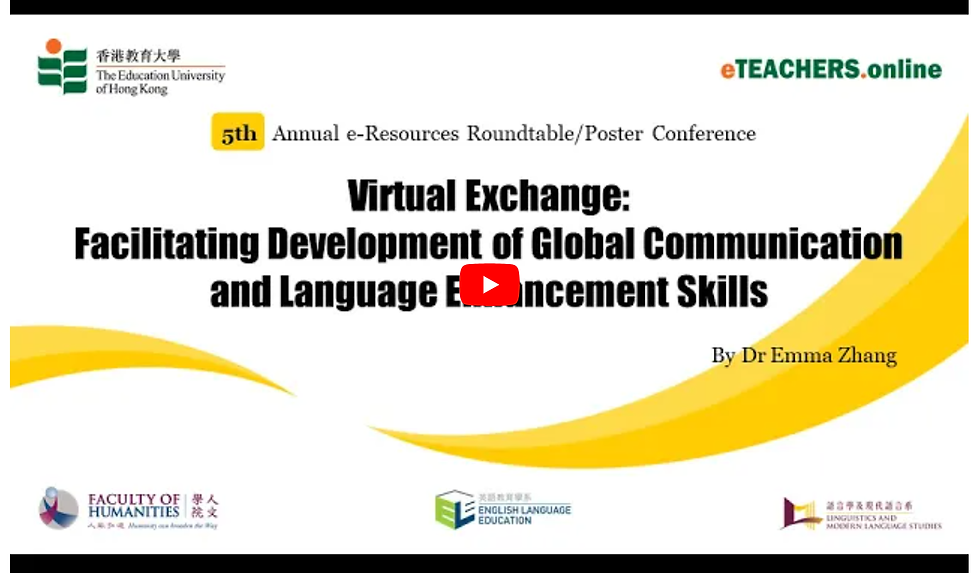Virtual Exchange: Facilitating Development of Global Communication and Language Enhancement Skills
- Timothy William TAYLOR
- Aug 1, 2022
- 2 min read
Updated: Mar 14, 2025
Dr Emma Zhang introduces Virtual Exchange to facilitate language enhancement skills. Virtual exchange allows students to interact with other students from around the world without leaving their home - in this case, Hong Kong. During the pandemic, our knowledge of the benefits of virtual exchange programs expanded greatly. The biggest advantage of virtual exchange is its accessibility. Students of all levels can be connected to their international peers through technology. Software such as Padlet, Zoom, and Pear Deck which enable audiovisual telecollaborations is free and easy to use, with security features that can allow teachers to track students’ level of engagement and gate keep students’ input when necessary. Virtual exchange is especially valuable to secondary school students to whom the exchange maybe their very first exposure to another culture. The program can also be used as a preparation course for overseas exchange programs to better prepare students for encountering and negotiating cultural differences for the first time.
This talk would share the experience of a virtual exchange program that was launched two years ago to improve students’ cross-cultural effectiveness in the classroom setting. The project was called “Enhance cultural understanding through virtual exchange”. It was designed to facilitate person-to-person online communication between learners from different cultural, linguistic, and geographic areas for an extended period. In the first phase, 30 American students and 19 Hong Kong students were brought together through asynchronous video messaging on Flip (not available now) for 10 weeks. In the second phase, 120 American students, 76 Hong Kong students, and 29 English majors from India participated. These learners from three geographic regions and multiple linguistic and cultural backgrounds had opportunities to interact together online for a period of six weeks.
The participants interacted with each other synchronously through Zoom and asynchronously through Flip. They also shared learning resources with each other on Padlet. Participants from Hong Kong took the Intercultural Effectiveness Scale (IES) survey both before and after their virtual exchange to measure their improvements in intercultural communication. They were also invited to join focus group interviews to share details of their experiences.
Initial findings indicate that virtual exchange successfully improves participants’ overall intercultural effectiveness. The experience helps learners to be more open to different cultures and to be more confident in their language skills.
View her presentation slides here.
(length: 47:07)
Outline of this Sharing Session: Virtual Exchange: Facilitating Development of Global Communication and Language Enhancement Skills
Presenter: Dr Emma Zhang

For more talks and topics, here is the full list of links to all the breakout sessions: https://eteachers.online/eteachers/.

Comments